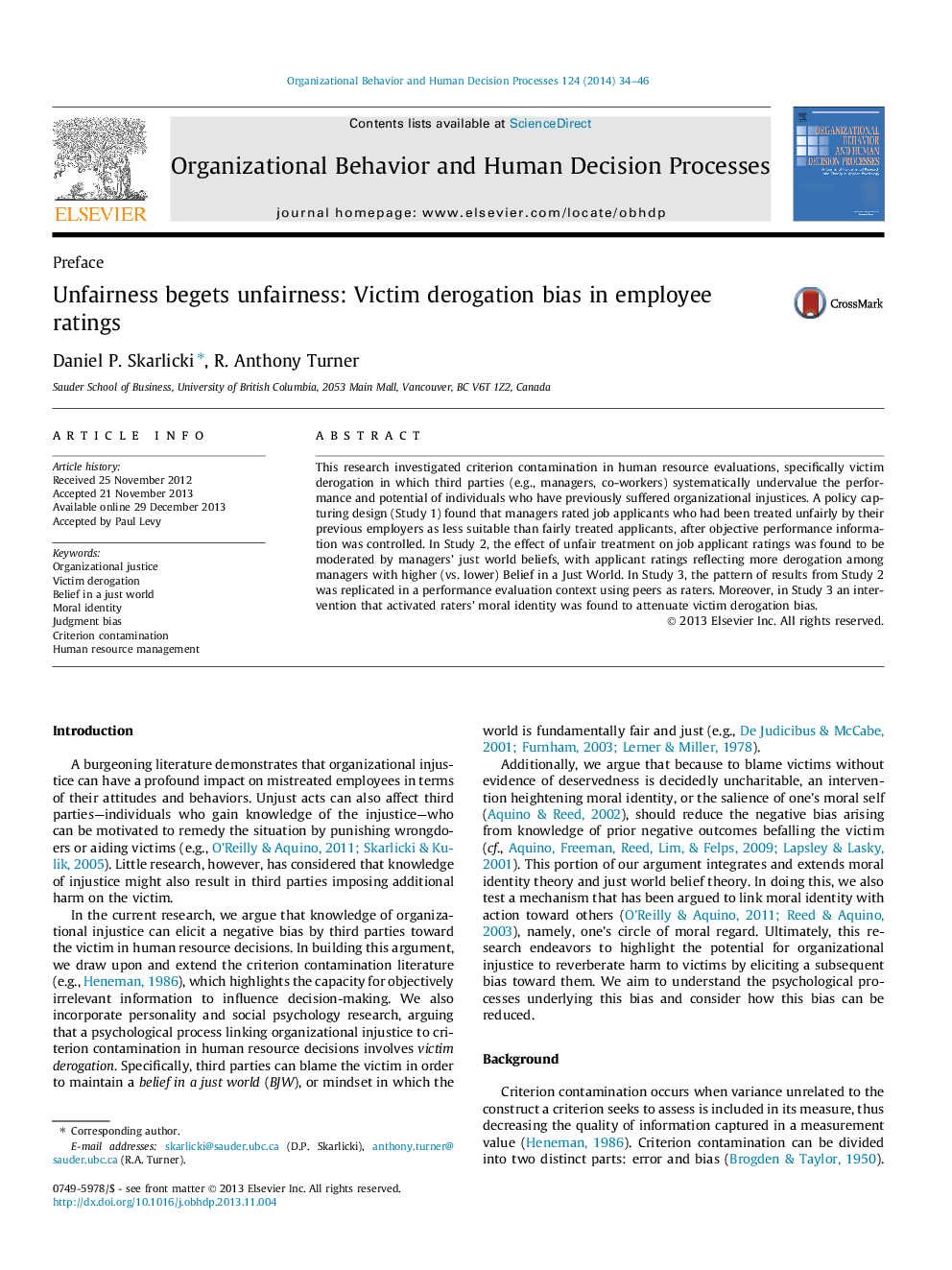| Article ID | Journal | Published Year | Pages | File Type |
|---|---|---|---|---|
| 10439837 | Organizational Behavior and Human Decision Processes | 2014 | 13 Pages |
Abstract
This research investigated criterion contamination in human resource evaluations, specifically victim derogation in which third parties (e.g., managers, co-workers) systematically undervalue the performance and potential of individuals who have previously suffered organizational injustices. A policy capturing design (Study 1) found that managers rated job applicants who had been treated unfairly by their previous employers as less suitable than fairly treated applicants, after objective performance information was controlled. In Study 2, the effect of unfair treatment on job applicant ratings was found to be moderated by managers' just world beliefs, with applicant ratings reflecting more derogation among managers with higher (vs. lower) Belief in a Just World. In Study 3, the pattern of results from Study 2 was replicated in a performance evaluation context using peers as raters. Moreover, in Study 3 an intervention that activated raters' moral identity was found to attenuate victim derogation bias.
Keywords
Related Topics
Social Sciences and Humanities
Business, Management and Accounting
Marketing
Authors
Daniel P. Skarlicki, R. Anthony Turner,
